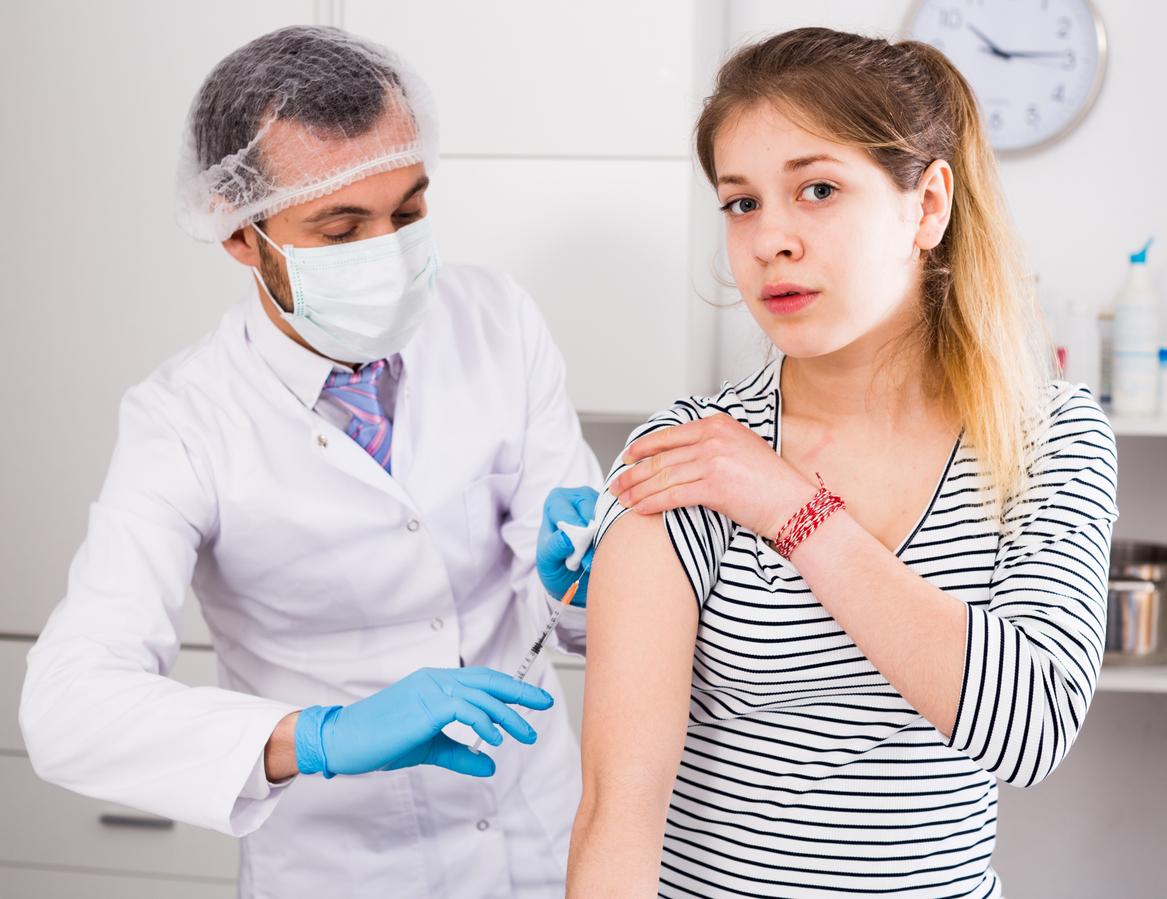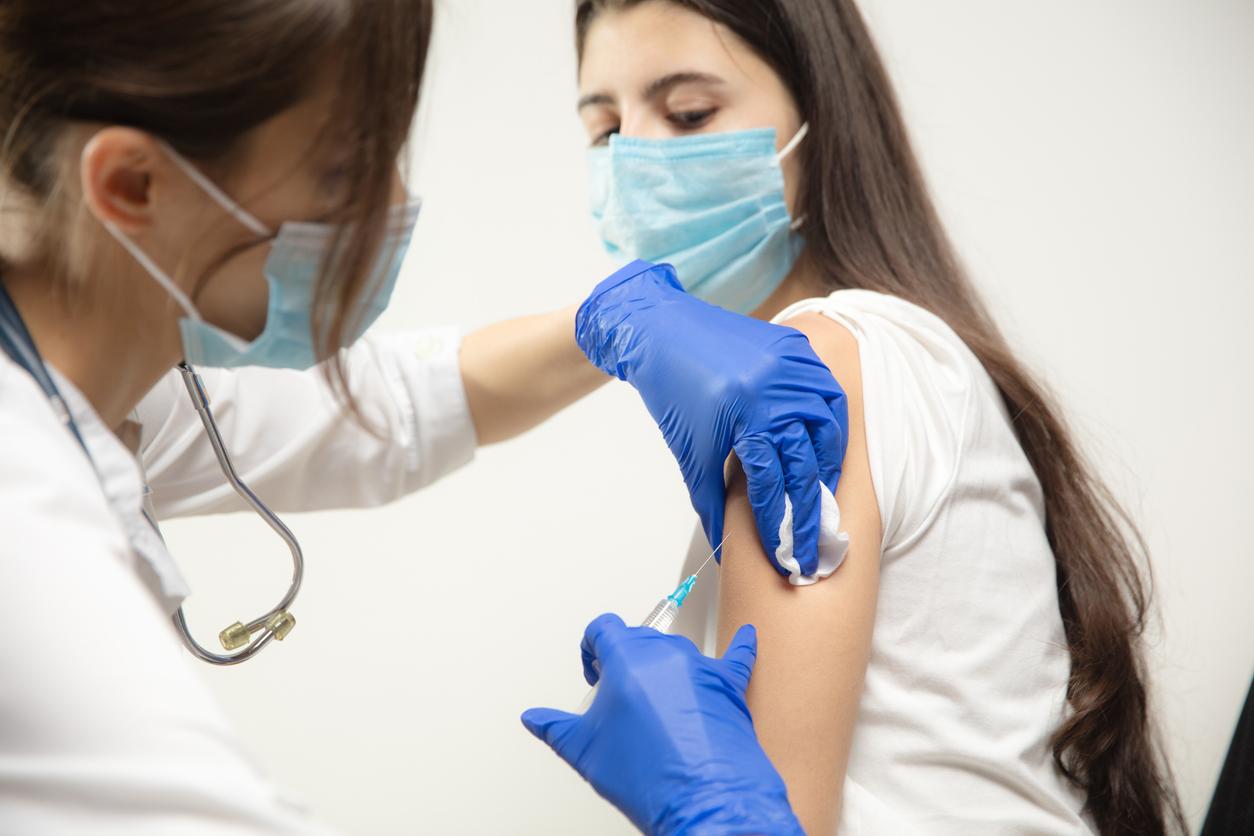What’s new for 2023? The Ministry of Health published, after the opinion of the High Authority for Health (HAS), this Wednesday, April 12, its new vaccination recommendations for people residing according to their age. This calendar issues “general” vaccination recommendations as well as “specific” recommendations specific to specific situations (increased risk of complications, exposure or transmission) or occupational exposure.
The calendar of #vaccinations 2023 is now available!
Read the press release: https://t.co/eQACvEOG9L
Consult the #calendar : https://t.co/RmBMInzt8Lpic.twitter.com/dwF04nlb7a– Ministry of Health and Prevention (@Sante_Gouv) April 12, 2023
What’s new in the 2023 vaccination schedule?
- There rotavirus vaccination is now recommended for all infants 6 weeks to 6 months of age, using a two-dose schedule for the Rotarix vaccine® (2 and 3 months) and three doses for the RotaTeq vaccine® (2,3 and 4 months).
- There annual seasonal flu vaccination can now be offered to children without comorbidities from 2 to 17 years of age. The HAS recommends giving preference to the vaccine administered intranasally.
- THE vaccine MenQuadfi® completes the offer of vaccination against invasive meningococcal infections of serogroups A, C, W and Y.
- There vaccination against human papillomavirus (HPV) infections will be generalized to all voluntary 5th grade students, from the start of the school year in September 2023.
The Social Security financing law has also made it possible to extend the skills of pharmacists, nurses, midwives and postgraduate medical students in terms of prescribing and administering vaccines. The list of vaccines and the target audience will be specified later this year, the ministry said.
What had changed in 2022
- Vaccination against meningococcal Bby Bexsero® recommended for all infants: first dose at 3 months of age, second dose at 5 months and booster dose at 12 months.
- Vaccination against meningococcal B also recommended for family circles of people at high risk of invasive meningococcal infections. A booster vaccination against meningococcal B every 5 years is recommended in people with an ongoing risk of exposure to invasive meningococcal disease.
- Vaccination against whooping cough recommended for pregnant women from the 2nd trimester of pregnancy, favoring the period between 20 and 36 weeks of amenorrhea (absence of menstruation), in order to increase the transfer of maternal antibodies and to ensure optimal protection of the newborn. born.
- Vaccination against seasonal flu recommended for professionals occupationally exposed to porcine and avian viruses. This vaccination is a collective protection measure aimed at preventing the transmission of human influenza viruses to animals and not an individual protection measure against porcine or avian zoonotic viruses.
What are the mandatory and recommended vaccinations for children?
Since January 1, 2018, 8 vaccinations, previously recommended, have become mandatory : these are vaccinations against whooping cough, invasive Haemophilus influenzae type b infections, hepatitis B, pneumococcal infections, invasive meningococcal serogroup C infections, measles, mumps and rubella, i.e. a total of 11 mandatory vaccinations. These 11 vaccinations are practiced, unless there is a recognized medical contraindication, in the first 18 months of the child.
whooping cough : vaccination is carried out with a combined vaccine at two-month intervals, at the age of 2 months (8 weeks) and 4 months, followed by a booster at the age of 11 months. A booster shot of this vaccine is recommended6 at the age of 6 years.
Diphtheria, tetanus and polio : the primary vaccination comprises two injections at the age of 8 weeks and 4 months, followed by a booster at the age of 11 months. Subsequent boosters are recommended at age 6 and then between 11 and 13 years.
Invasive Haemophilus Influenzae type b infections : two injections 2 months apart at the age of 2 months (8 weeks) and at 4 months, followed by a booster at the age of 11 months.
Hepatitis B : two injections at the age of 2 months (8 weeks) and 4 months, followed by a booster at the age of 11 months
Invasive meningococcal infections : one dose at 5 months and a second dose at 12 months.
Human papillomavirus (HPV) infections: vaccination is recommended for all young girls and for all boys aged 11 to 14 years old with two doses spaced 6 to 13 months apart. In the context of catch-up vaccination, vaccination is recommended for both sexes between 15 and 19 years of age. Any new vaccination must be initiated with the vaccine Gardasil 9®. The vaccines are not interchangeable and any vaccination initiated with the Cervarix® must be completed with the same vaccine.
Pneumococcal infections : two injections two months apart at 8 weeks and 4 months of age followed by a booster dose at 11 months of age.
Measles Mumps Rubella : an injection at 12 months followed by a second injection between 16 and 18 months, regardless of the mode of care of the child.
Tuberculosis : vaccination is no longer compulsory for entry into nursery or school but it is recommended for children exposed to a high risk of tuberculosis, from the age of 1 month, ideally during the 2nd month . The children at risk are those born in a country with a high tuberculosis endemicity or one of whose parents is from these countries; children who must stay at least one month in countries with a high tuberculosis endemicity, those who have a family history of tuberculosis (collateral or direct ascendants) and children residing in Île-de-France, Guyana or Mayotte.
What are the recommended vaccinations for adults?
Diphtheria, tetanus and polio : adult boosters are recommended at fixed ages of 25, 45 and 65, then every 10 years.
Measles Mumps Rubella : catch-up for people born after 1980, to obtain a total of two doses of trivalent MMR vaccine (with a minimum delay of one month between doses), regardless of their history with respect to the three diseases.
Shingles : vaccination is recommended for adults aged 65 to 74, including people who have already had one or more episodes of shingles. A single dose and no reminder.
Source :
- Vaccination scheduleMinistry of Health, April 12, 2023

















